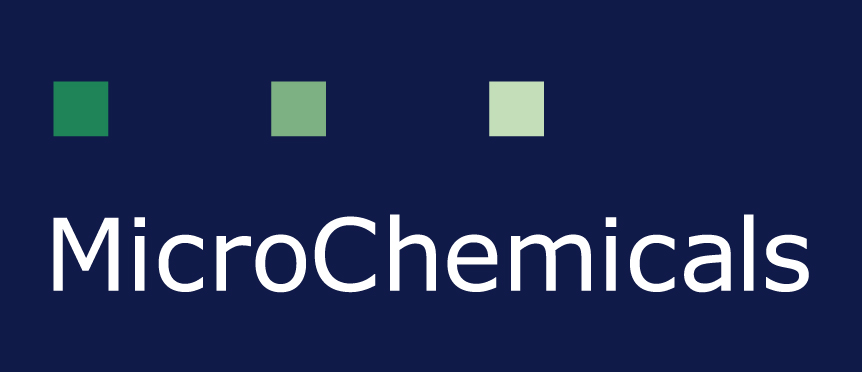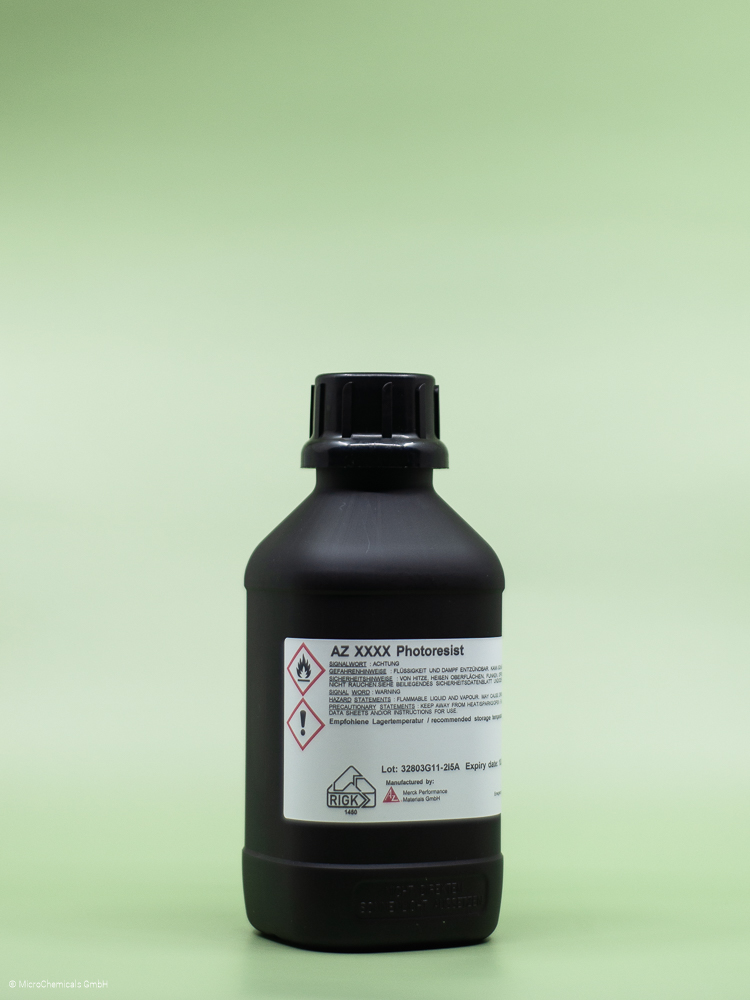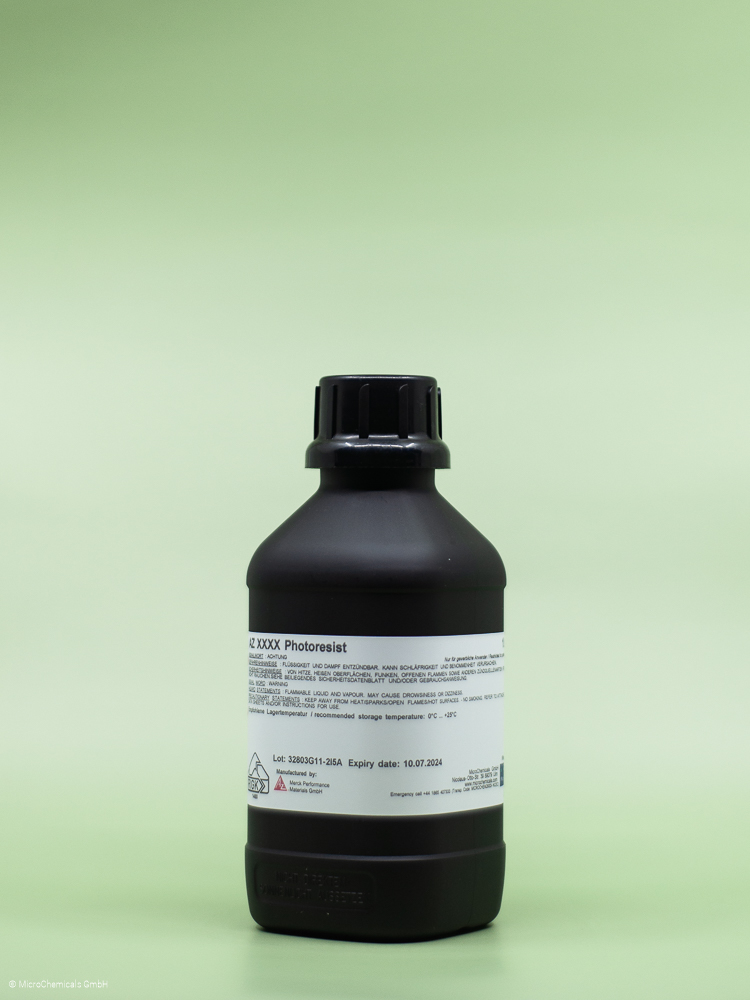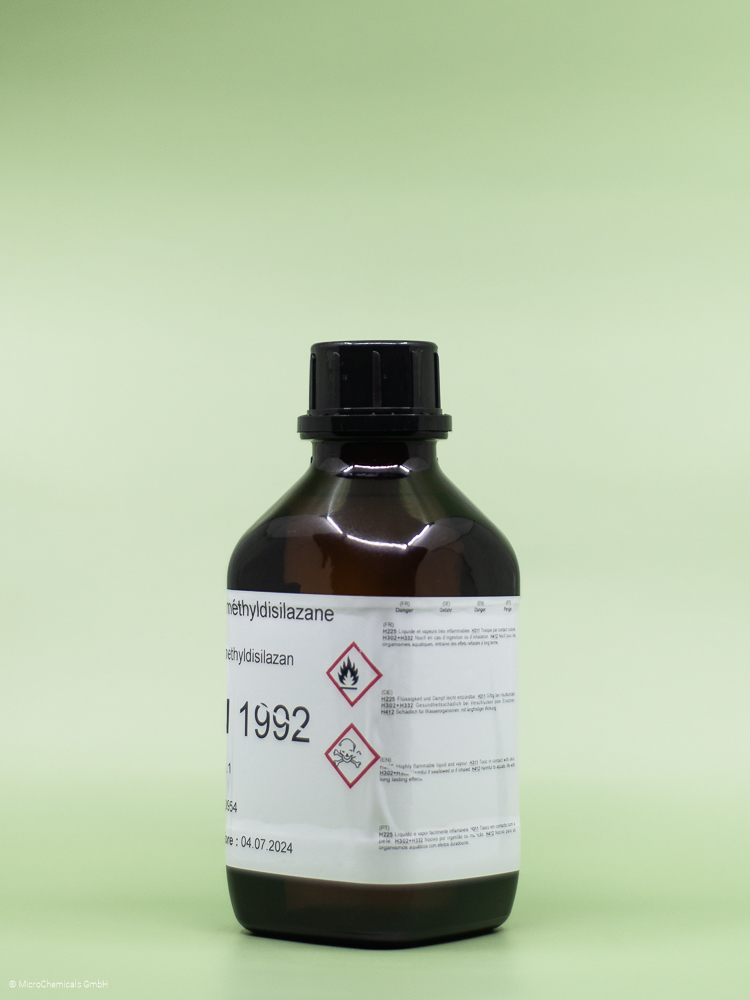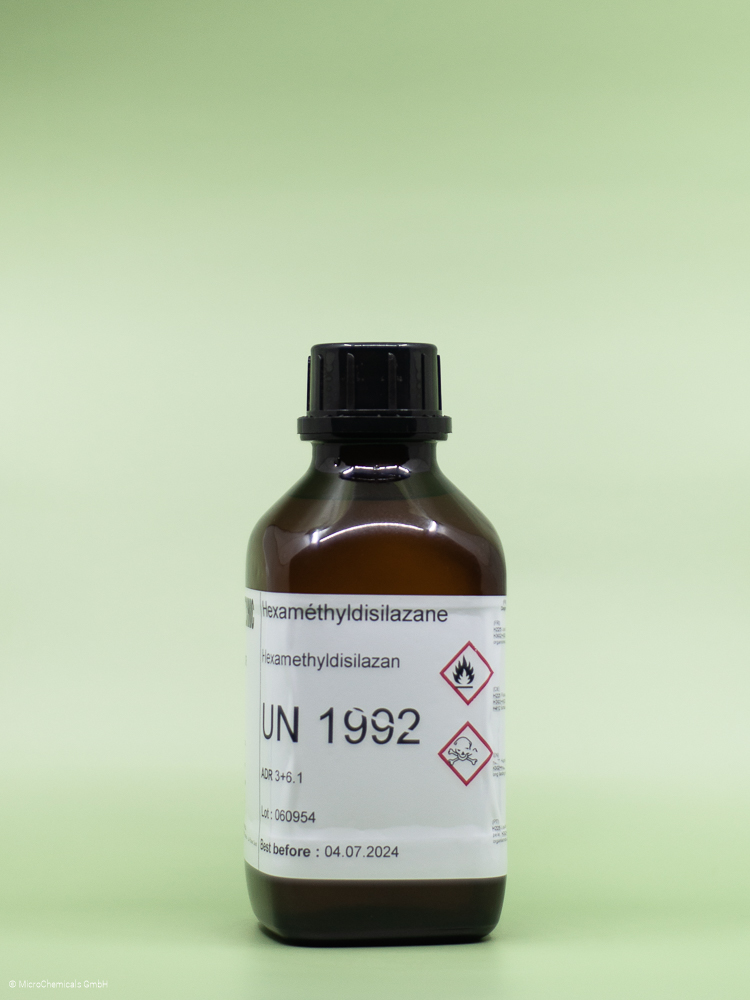TI Prime - 1.00 l
MicroChemicals GmbH
TI Prime is based on an organic titanium compound. After spin-coating, a baking step causes a chemical bonding to the substrate surface.
The prices are visible after registration.
Send us an inquiry if you have any questions about articles, purchase quantities, delivery times or sample requests!
Product number:
100p001
Manufacturer:
MicroChemicals GmbH
Product information "TI Prime - 1.00 l"
TI Prime
Adhesion Promotion
General Information
The TI Prime adhesion promoter improves resist adhesion on substrates such as Si or glass. TI Prime contains Titanium, for this reason TI Prime should not be used where a contamination with Titanium could be a problem. In contrast to HMDS, TI Prime is applied via spin coating, where a sub-mono layer is adsorbed onto the surface. In a subsequent baking step the surface is activated. After cooling down the fusion should be applied.
Further Information
MSDS:
Safety Data Sheet TI Prime english
Sicherheitsdatenblatt TI Prime german
TDS:
Technical Data Sheet TI Prime english
Application Notes:
Substrate Cleaning and Adhesion english
Substrat Reinigung und Haftung german
